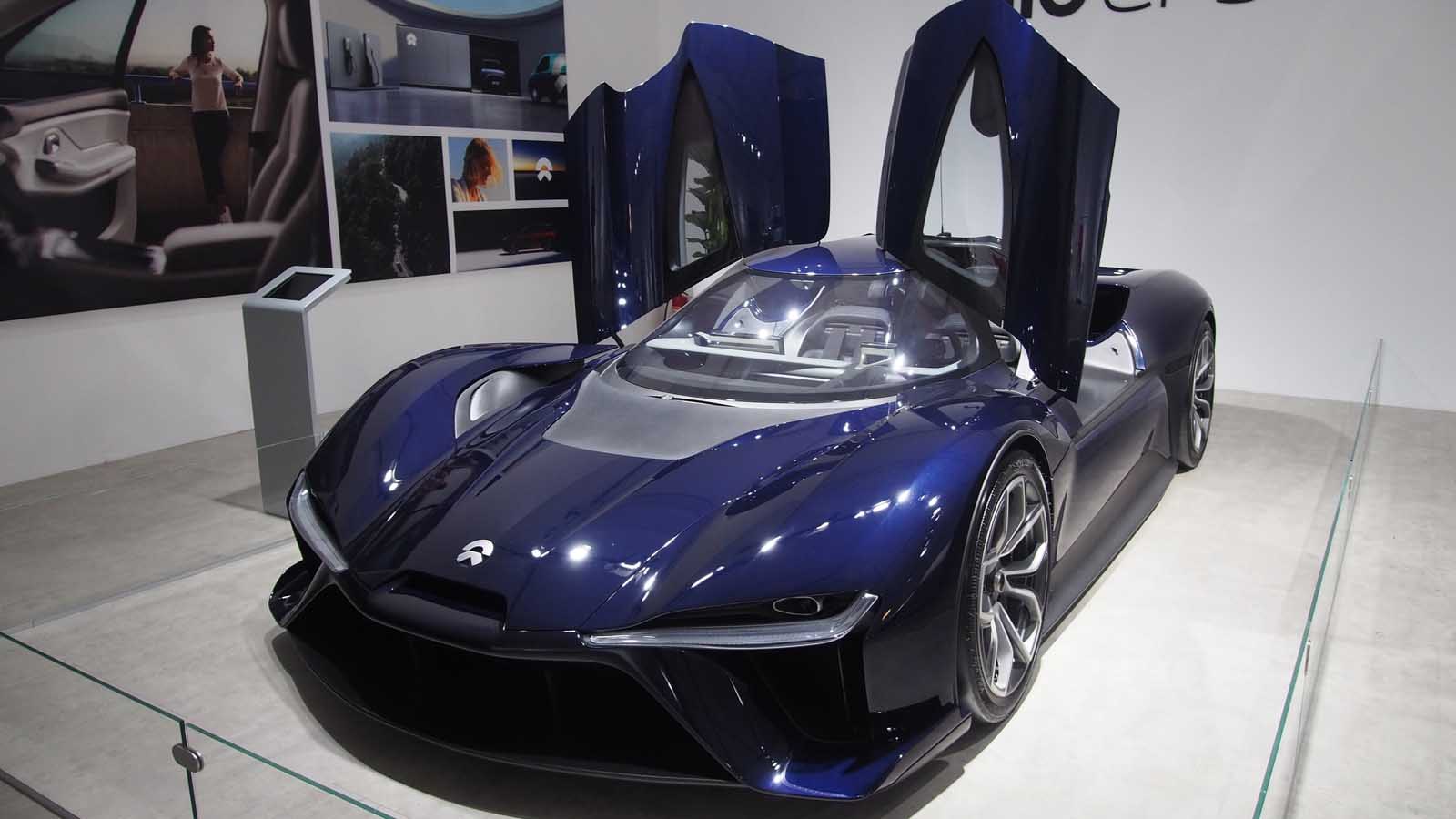New year, same old overpriced electric vehicle (EV) stocks. After a mammoth 2020, investors were hoping for some relief. Unfortunately, that doesn’t seem likely. Meanwhile Nio (NYSE:NIO) has seen its stock maintain the positive momentum as well, climbing 30.6% in one month.

That momentum is puzzling since several negative news items are emerging regarding the wider EV space and Chinese EV stocks. But despite the negative news, Chinese EV stocks continue to gain exponentially, leading to outsized valuations for several of the usual suspects.
The Global X Autonomous & Electric Vehicles ETF (NASDAQ:DRIV) and iShares Self-Driving EV and Tech ETF (NYSEARCA:IDRV) are both up by double digits in one month. Tesla’s (NASDAQ:TSLA) market cap rose by over $500 billion in 2020, and it’s now worth as much as the combined market cap of the nine largest car companies in the world.
Nio isn’t that far behind. The Chinese EV giant is the second most valuable automaker globally. That’s quite astounding when you consider the wide gulf between its sales and more illustrious names such as General Motors (NYSE:GM), Fiat Chrysler Automobiles (NYSE:FCAU) and Ford Motor (NYSE:F).
Bottom line: EV mania is in full swing and shows no signs of slowing down. Eventually, Nio’s stock will fall from grace and reflect the underlying fundamentals. Until then, it’s best to steer clear of Nio stock.
Nio Stock: All Systems Go
By all means, Nio had a watershed 2020. On Jan. 4, 2021, the Chinese automaker reported record monthly, quarterly and yearly delivery numbers for the end of 2020. In December, Nio delivered a record 7,007 electric vehicles, a year-over-year. That brought quarterly deliveries to 17,353 vehicles and 43,728 vehicles for all of 2020, representing year-over-year growth of 111% and 113%, respectively.
NIO stock has also beat earnings in five of the last six quarters. In the third quarter of 2020, the company reported a 146.4% jump in total sales from the year-ago period, while net loss narrowed to 1,047.0 million yuan, representing a decrease of 58.5% year-over-year. Most notably, gross margins improved to 12.9%. That’s still not high enough when you compare it with peers, but an improvement nonetheless.
EPS came in at -$0.14 per share, compared to analysts’ expectation of -$0.17 per share, a 17.6% beat. Projections are for the company to become profitable by fiscal 2022.
Political Issues Are Not Hurting the Chinese EV Sector
Time will tell if U.S. President-elect Joe Biden decisively ends the multi-year trade war China. In an interview with The New York Times, the incoming president said he would not immediately remove tariffs on Chinese products and that he would “consult” with U.S. allies to develop a “coherent strategy” against China.
These remarks indicate that anyone hoping for an immediate thawing of relations will remain disappointed. We’ve already seen President Trump sign a bill that could remove Chinese companies from U.S. exchanges if American regulators are not allowed to review their financial audits.
Nio believes it is in compliance with the new legislation. Regardless, the bill being passed isn’t great news for the company, or the other two big Chinese EV markers, XPeng (NYSE:XPEV) and Li Auto (NASDAQ:LI).
The surprising thing, though, is that none of the major EV stocks have felt the brunt of this news. After a mild hiccup initially — all three U.S.-listed Chinese EV stocks moved lower by about 1% to 3% — they started to rise once again, and the news barely affected them.
Meanwhile, EV sales in the U.S. are slowing. China is the world’s largest EV market, with 2.3 million electric vehicles in active use. Europe and the U.S. are relatively far behind, with 1.2 and 1.1 million EVs, respectively. Although not the biggest market, America represents a key aspect of Chinese EVs’ overall growth plan. Hence, the pronounced drop in U.S. sales should prompt concern regarding the future of EV business there.
Solid Investment but Overvalued
The future is electric, and I’m not here to dispute that. If you bought into electric car stocks before 2020, then you just had a great year. However, if you missed the train, then it might look daunting to climb in now.
Overvaluation concerns regarding the EV sector are not new. Even the darling of the industry, Tesla, is not immune to the conversation. Time will tell when the long-awaited reconciliation of Tesla’s valuation with the firm’s poor fundamentals will happen. Despite Elon Musk admitting that the stock is highly overvalued, the markets don’t seem to think so.
Sadly, Nio stock is suffering from the same misplaced enthusiasm. By any stretch, it’s highly overvalued. Sales numbers are moving northward, and fundamentals are improving.
However, Nio is one of the four most-valuable automakers in the world. Shares are trading at 35.2 price-to-sales.
Hopefully, the coming quarters will see a return to normalcy for the stock. Before that, it’s best to let this one cool off.
On the date of publication, Faizan Farooque did not have (either directly or indirectly) any positions in the securities mentioned in this article.
Faizan is a contributing author for InvestorPlace.com and numerous other financial sites. A former data journalist at S&P Global Market Intelligence, he’s passionate about helping retail investors make more informed decisions regarding their portfolio.
